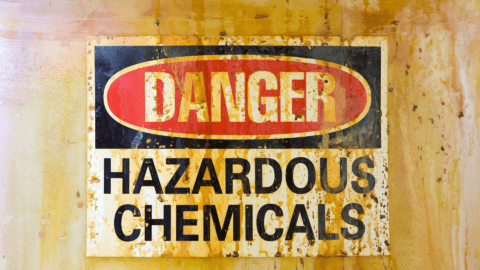Observe National Poison Prevention Week
National Poison Prevention Week rolls around every third full week of March, shining a spotlight on the critical issue of poisoning risks and the importance of community action in preventing such incidents. However, the commitment to poison prevention shouldn’t just be an annual affair. It’s an ongoing mission to safeguard both children and adults from the dangers lurking in our homes, where over 90% of poisonings occur.
Essential Poison Prevention Strategies
To keep our environments safe, we need to adopt stringent safety measures and educate ourselves and our loved ones on the do’s and don’ts of handling various substances. Here’s how you can contribute to making your home a safer place:
- Avoid Mixing Chemicals: Combining household or chemical products can lead to the creation of toxic substances. Keep them separate to prevent dangerous reactions.
- Prescription Medications: Sharing prescription medications is a no-go. What’s meant for one person could be harmful to another.
- Secure Storage: Store chemicals, cleaners, medicines, and other potentially poisonous items in locked cabinets or well beyond the reach of curious hands.
- Original Containers: Always keep poisons in their original packaging, well away from food items, and never use food containers to store non-food substances.
- Spraying Safely: When using sprays, direct them away from people and pets to avoid inhalation or skin contact.
- Awareness of Toxic Substances: Be conscious of products like windshield wiper fluid that are harmful if ingested and common household cleaners that can cause skin burns. Employing personal protective gear when using such substances is a must.

Preparedness for Poison Exposure
In the unfortunate event of poison exposure, knowing the right steps to take can significantly mitigate the effects. Here’s what to do:
– Emergency Response: Call 911 immediately if someone is unconscious or having difficulty breathing.
– Poison Help Line: For less critical situations, the Poison Help Line (1-800-222-1222) is your go-to resource, connecting you with local poison control experts.
– Fresh Air: Move the person to fresh air promptly if they’ve inhaled a toxic substance.
– Skin Exposure: If poison comes into contact with the skin, remove contaminated clothing and rinse the skin for 15-20 minutes under running water.
– Eye Contamination: Rinse the eyes with running water for a similar duration in case of exposure.
Effective Communication with Poison Control
Should you need to call the Poison Help Line, having specific information on hand can facilitate swift assistance:
- The exposed individual’s age, weight, and any health conditions
- Details of the product involved
- Mode of contact (ingestion, skin, eyes)
- Time since exposure
- First aid actions taken
- Symptoms presented
- Your location and proximity to medical facilities
Poison prevention is a critical aspect of maintaining a safe living environment. By following these guidelines and being prepared for potential exposures, we can significantly reduce the risk of poisoning in our communities. Remember, safety starts with awareness and is sustained by action.
Reference: Health Resources and Services Administration – Poison Help
Contact WorkSafe to find out how we can help your company today!
Working to keep you safe, healthy, and productive,

